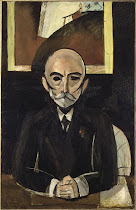WARNING I spoil Avatar in this post.
I watched Avatar in a surprisingly filled IMAX theater on a Monday afternoon over a month after it opened. I didn't find it very memorable but I did like the villain and the final fight. There's been a lot of talk about the offensive storyline in Avatar and I wanted to attack and defend it.
TAKING SHOT AT AVATAR:
Typical Whitey Saves the Day
Undeniably, the story contains a heavy dose of colonial mentality. Basically: the savages need a white male savior. The message here is that foreigners are waiting for a Westerner to save them. This mentality is also very prevalent in our various "save Africa" charity campaigns. From (Red)'s "spend money until we save Africans from AIDS" to the classic "only your money can buy African children food, water, and to learn to read the Bible". In the film the natives are pretty cool but absolutely useless when it comes to fighting the humans. The protagonist saves the day by throwing grenades in the attacking aircraft engines. All of his training to become a native warrior did fuck all. Good thing he was also a trained soldier.
The Alien Natives
The way the aliens all sit cross-legged and chant to their tree-god made me uncomfortable. Hollywood storytellers always portray natives with the same connection to nature. They are "purer", living with a spiritual (and in Avatar literal) bond with plants and animals. Savages love nature and civilized people hate it. Savages live in balance and civilized people live in greed. This is the classic dichotomy. For once I'd like to see a tribe that hates nature as much as everyone else and focuses on the constant struggle to tame it with technology. Although I was excited to see that the forest creatures came to the aid of the natives -that choice also made me uncomfortable. So did the film's use of the words 'shaman' and 'race'.
I also felt like I could overhear meetings that included comments like "make sure the warpaint looks tribal and cool" and "the aliens should have dreadlocks and if anyone asks tell them that they're organic internet cables" and "I told you not too African but this other one isn't African enough."
IN DEFENSE OF AVATAR:
Cheering when White People Die
We're meant to enjoy the death of regular white soldiers who are killed in the line of duty. This is an unusual choice for mainstream action. During the climactic air battle sequence the tough alien warrior jumps on the ship and begins tossing humans to their doom. It's clear that we're meant to be on his side emotionally and feel sadness only after he is shot and falls to his own slow motion doom. Usually, when white people die in cinema, especially at the hands of natives, it's important to show them doing something cruel beforehand.
Woman Saves Day
Why aren't more people pointing this out? I was most impressed by the choice to have the female hero save the protagonist's life twice at the end of the movie. This is a big deal. Action movies do not end this way. In Avatar it seemed very natural. First, she has to kill the villain because he can't. Then she has to save his ass again because he fails to put on an oxygen mask. Also, she's not overtly sexualized in the film. I know all of the Aliens have intergalactic runway model body types but I'm talking about bending over, taking her top off, or coming out of the waterfall shower. I feel that they consciously avoided the sex object route. Also, she's a ten foot tall blue-animal-woman. I would argue that Avatar is a good feminist film because it expands our expectations of women in cinema. She trains the protagonist, she saves his life three times in the film, and she isn't overtly sexualized.
If Frantz Fanon wrote Avatar:
One of the interesting aspects of Avatar is language (it's a constant struggle in sci-fi movies to explain why everyone can understand each other). The aliens speak english because a school had been set up but later kicked out. The film stays pretty superficial on this topic. The teacher of the school learned to speak the alien's language. And we're meant to like her because she shows respect for foreign culture and she like children. Even our hero trains for three months and speak their language as often as a mainstream audience can stomach subtitles. For the sake of Fanon, I was really hoping they were going to show more of a disillusioned generation that had been trained to speak English and then discovered that humans didn't give a shit about their opinions. Then they would have been outcasts from both sides. Shunned by the aliens for acting "too-human" and never taken seriously by those who taught them.
The epiphany
The aliens don't need us. They have a thriving, independent culture with a long history. This is an interesting linchpin of the plot. Our protagonist reveals that there is nothing humans can offer the aliens. At which point the corporation decides to kill them. Interesting note, the military villain mentions he had done three tours of duty in Nigeria which I feel is an intentional reference to Shell Oil's dirty business.
IN CONCLUSION:
Avatar is a film that reinforces the idea that white people are here to save the world while working very hard to show a respect for other cultures. Obviously these contradict and, in the end, white people rule!
Wednesday, February 10, 2010
Subscribe to:
Post Comments (Atom)






No comments:
Post a Comment